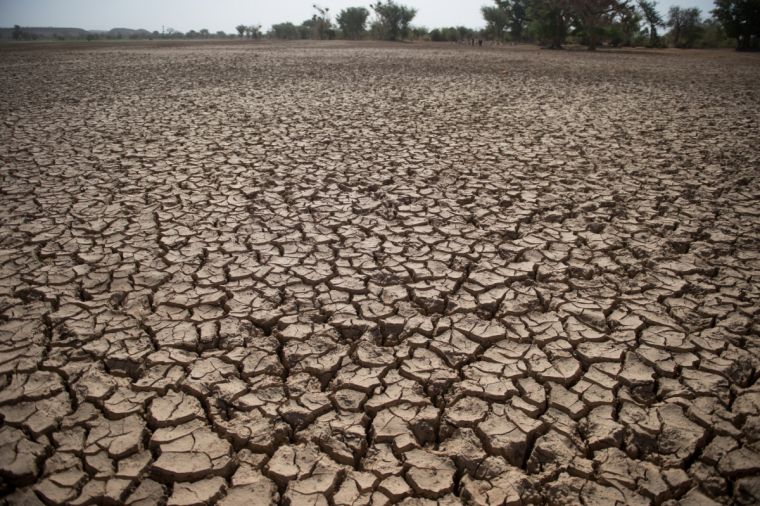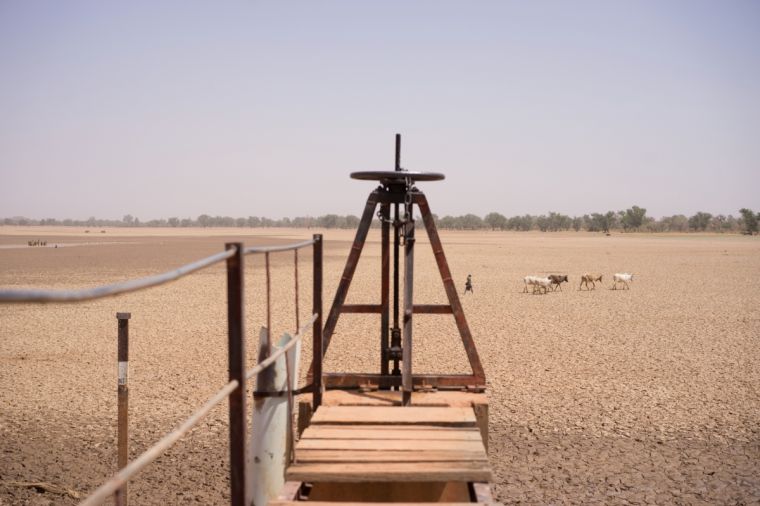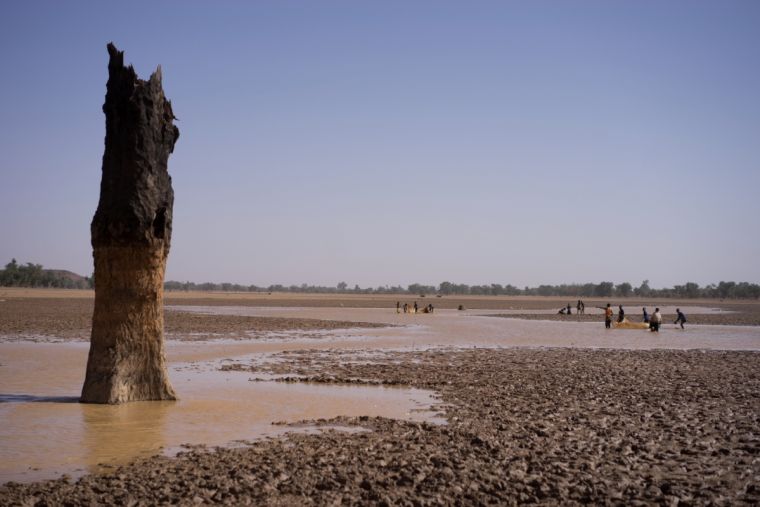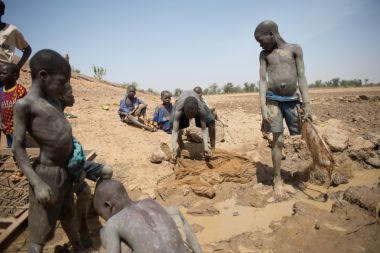Deserts are getting bigger, which means people are going hungrier

I don't know about you, but I tend to think about deserts as pretty static entities. Well, that is, when I think about deserts at all, which, living in slightly soggy Britain, is usually only when I'm trying to remember how many 's's to put in 'desserts'.
In my – albeit limited – consciousness, a desert is a geographical place with definable boundaries that have looked the same for some time – long enough to appear on a map. Of course geologists and geographers will take a very different approach, and have a much greater appreciation for the way the earth has changed over time.
But when I found myself standing in Louda village, in northern Burkina Faso looking at a vast area of dry earth, knowing that it was designed to hold 4 million cubic metres of water, the realisation dawned that deserts are changing.

We know that the climate is changing; we know that ice caps are melting, that rainfall patterns are changing, but we're not always that good at connecting these facts with the effect on the land.
Northern Burkina Faso is in the Sahel region, a largely arid belt across the middle of Africa which borders the Sahara. Many areas of the Sahel suffer from desertification, with regular droughts and deterioration of the land from over-farming.
The dusty landscape above was the Louda dam – built in 1959, for years it was a model for dam-building and rice farming irrigation around the country. But in recent years the rains have been more erratic and so the water levels in the dam have been much lower.

The photo can't convey the size of it. Where there are now only a few muddy puddles of water with children looking for fish with nets, in years gone by you could have waded into the water and collected a large amount of fish just with your shirt.

You wouldn't expect it to be full in February (half way through the dry season) when this photo was taken, but it's certainly not a good sign that it's empty. This year at its height it only reached half its full capacity. In 2012 it was even lower, something that affected the whole region which was beset by a major food crisis that year.
The water collected in the dam used to provide people in the 206 surrounding villages (about 250,000 people) with water for drinking, washing, farming and construction. As a result of the drying of the dam, there has been a decline of more than two thirds of the agricultural production in the area.
Some people have moved away in search of more habitable land, but others – usually the poorest – are left trying to make a living without being able to produce much during the dry season (October to May). This has caused the massive rural exodus in the northern central region to the cities or to certain localities more productive. They are called climate refugees. Christian Aid's partners are supporting communities, particularly women, with training and land for market gardening – providing a source of both food and income outside of the rainy season.
The changes to the land are not necessarily irreversible, but it does require significant optimism and a lot of hard work to combat it. Planting trees and increasing the fertility of the soil can help to prevent desertification, as well as adapting farming methods to the effects of climate change.
The thing that gets me, though, is that they are digging away in the dust to find ways to survive, while we continue to consume and pollute.
Christian Aid works with some of the poorest people in around 40 countries, through local partner organisations, to end poverty. This Christian Aid Week (10-16 May) thousands of volunteers across the UK will take part in Britain's longest running door-to-door fundraising week to raise money for its vital work with communities like those in Burkina Faso featured here. To make a donation visit www.caweek.org, call 08080 006 006 or text 'WEEK' to 70040 to give £5.











